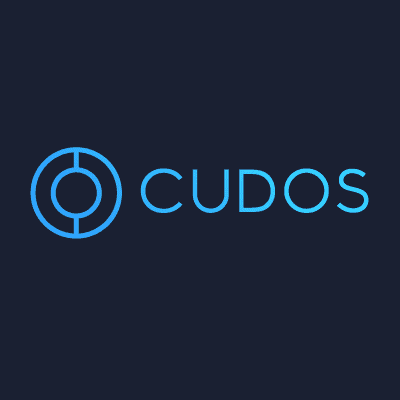INTRODUCING CUDOS: A VIABLE TOOL TO SOLVE BLOCKCHAIN’S ISSUE OF SCALABILITY AND INTEROPERABILITY

As the base network or primary blockchain network in charge of on-chain transactions, such as those involving Bitcoin, BNB Chain, or Ethereum, and their supporting infrastructure, Cudos is a Delegated Proof-of-Stake (DPoS), layer-1 blockchain with the goal of making decentralized computation accessible on-chain. Here, the blockchain's verification and consensus technique is called delegated proof of stake. It is a well-liked development of the PoS idea in which network users pick delegates to validate the following block by casting votes. To validate transactions and advance blockchain organization, DPoS competes with existing proof of work (PoW) and PoS schemes.
Byzantine Fault Tolerant (BFT) consensus model is used to power a Tendermint Core engine, which acts as the blockchain's consensus engine. It makes sure that the same sequence of transactions is captured on each system. It supports the peer-to-peer network and offers a consensus based on proof of stake (PoS). Using Proof-of-Stake consensus, validators are in charge of adding new blocks to the blockchain and protecting the network. Less than one-third of the Byzantine validators must agree for the BFT model to accept it. It is the most popular consensus engine in the sector and is regarded as the benchmark in Proof-of-Stake consensus.
The Cudos network's design keeps consensus and execution separate to provide safe, decentralized, and permission-free access to high-performance computing on a large scale.
Users building on the network get the leverage of accessing:
Superior performance for applications
Transparency of public blockchain
Management of composable assets
Benefits to chain users include:
High-level cryptography
Blockchain transparency for everyone
Interchain communication
Transactions that are carbon-neutral
Cudos Validators are nodes that confirm and verify transactions, add new blocks to the Cudos blockchain, and supply all data for dApps running on the Cudos network. Computers running the Cudos client software are referred to as "nodes." Validators take part in the consensus protocol by broadcasting votes that are encrypted and signed with a private key belonging to each validator. Users who vote for Validators receive rewards in exchange for helping to secure the network.
Need for establishing Cudos Node?
The possibility to participate in a project and larger ecosystem targeted at resolving today's blockchain scalability and interoperability problems is exceptional while running a Cudos Node.
Validator and Delegator as a tool for DAO
The Cudos system relies on validator nodes to relay transactions and to propose, verify, and finalize blocks, which is why running one is so important. The Cudos Network's security and upkeep are dependent on a community of validators to carry out specific tasks. By utilizing their "stake" to cast a vote on proposed changes to the network's governance, validators contribute to the growth and evolution of the network as well. You now have power over the Cudos Network's future course. There are unique validators for each network.
Testnet; and
Mainnet
You may successfully extract blockchain data for chain analytics or other data use cases by running either type of node. We advise running a node locally first before moving on to the Testnet if you want to join the network. The Testnet provides a learning environment where you may explore without worrying about losing actual tokens.
Validator respondents are eligible to bond their own CUDOS tokens and have additional CUDOS "delegated" or staked to them by other token holders. The whole quantity of CUDOS tokens that have been delegated determines who has the authority to validate. A candidate's voting power is determined by how many CUDOS tokens they hold. To participate in the validation process, only the top validators with the highest Voting Power are permitted. As an added incentive, validators may choose the commission percentage that will be added to the fees that go to their delegators.
Validators and their Delegators earn CUDOS as block provisions and tokens as transaction fees through execution of the consensus protocol.
However, a Validator's stake is slashed if they become unavailable or sign blocks at the same height. Their staked CUDOS (including CUDOS of users that delegated to them) can be slashed. The penalty depends on the severity of the violation. A good Cudos validator needs to aim for 99.99% uptime and <0.01% missed blocks.
N/B: To ensure maximum uptime and availability:
Validators should ensure they always run a correct version of the software.
Validators should implement a Sentry Node Architecture to protect their node from DDoS attacks
To be a validator, requires 2,000,000 CUDOS tokens. CUDOS are the Native, Utility token underpinning the Cudos Network with an ERC20 token contract address: 0x817bbdbc3e8a1204f3691d14bb44992841e3db35. The CUDOS token is a capped supply token. The circulating supply is approximately 2.8 billion and the total cap is fixed at 10 billion.
On the other hand, Delegators bond or stake CUDOS to validators of their choice in return for a share of Validator rewards. The bonded CUDOS form the validators’ Voting Power. The validators with the most Voting Power are then selected for rewarding verification process.
Tokens remain on the Delegator's wallets throughout and can be accessed again once un-delegated. The un-delegation process is quick and easy to perform.
